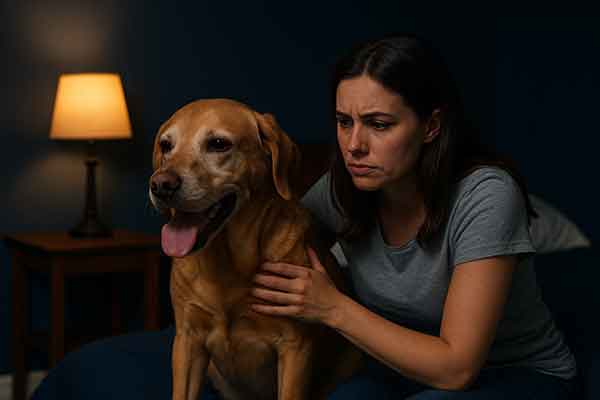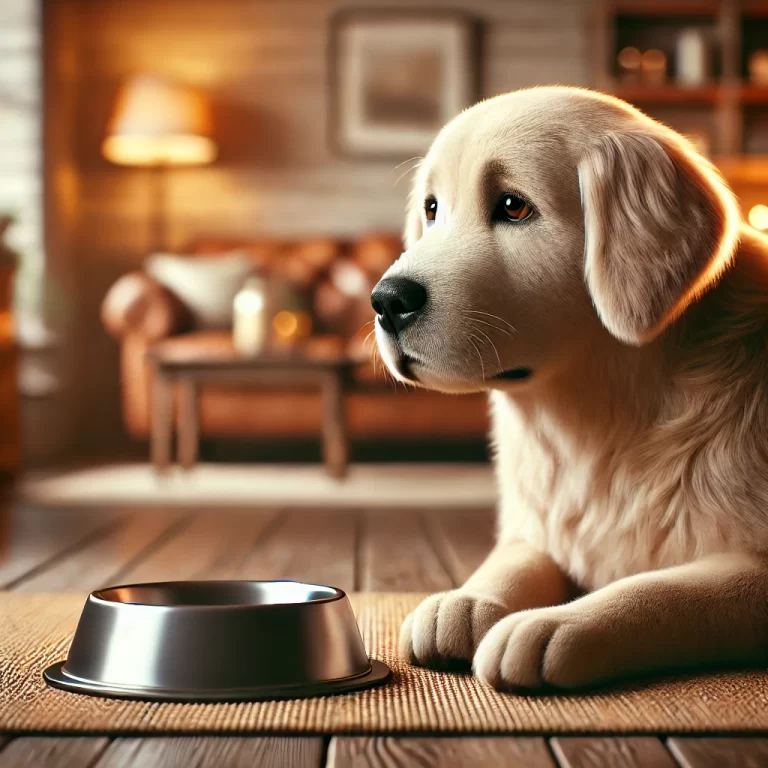Why Do Dogs Pant at Night? Causes, Solutions & When to Worry
If you’ve ever been woken up by the sound of your dog panting heavily in the middle of the night, you’re not alone. Why do dogs pant at night? While panting is a normal cooling mechanism for dogs, excessive or unexpected panting during nighttime could signal something more. In this comprehensive guide, we’ll cover common causes, possible health issues, and tips to help your dog—and you—get a better night’s rest.
Table of Contents
- Understanding Why Dogs Pant
- Normal vs. Abnormal Panting
- Top Reasons Dogs Pant at Night
- Medical Conditions That Cause Panting
- Behavioral and Environmental Triggers
- How to Help a Panting Dog at Night
- When to Call the Vet
- FAQ
Understanding Why Dogs Pant
Panting is a natural process that helps dogs regulate body temperature. Since dogs don’t sweat like humans, they rely on panting to cool down through moisture evaporation from the mouth and tongue. Mild panting is completely normal, especially after exercise, during hot weather, or due to excitement.
Normal vs. Abnormal Panting
It’s important to distinguish between normal panting and panting that may be a sign of a problem:
- Normal: Light, steady breathing after play or during a warm evening
- Abnormal: Heavy, labored, persistent panting, especially when the dog is at rest or during the night
Top Reasons Dogs Pant at Night
Here are some of the most common non-medical reasons dogs pant at night:
- Warm Sleeping Environment: Your dog might simply be too hot. Lack of airflow, heavy bedding, or warm weather can contribute.
- Anxiety or Stress: Dogs suffering from separation anxiety, fear of noises, or changes in their environment may pant as a coping mechanism.
- Dreaming or REM Sleep: Just like humans, dogs can dream. Increased breathing or twitching during REM sleep is normal and may appear as panting.
- Overexertion Before Bed: A long play session or walk too close to bedtime can lead to lingering heat and elevated respiration.
- Age-related Issues: Older dogs may develop nighttime restlessness or cognitive decline, often leading to pacing and panting.
Medical Conditions That Cause Panting
Sometimes, panting is not just a behavioral issue but a sign of an underlying health problem. These include:
- Pain or Discomfort: Dogs in pain may pant, especially if lying down worsens their discomfort.
- Heart Disease: Conditions like congestive heart failure can cause labored breathing and nighttime panting.
- Respiratory Disorders: Lung infections or tracheal collapse may result in heavy panting, especially when lying flat.
- Cushing’s Disease: A hormonal disorder common in older dogs that often leads to excessive panting and thirst.
- Anemia: A lack of oxygen-carrying red blood cells can lead to increased breathing effort.
- Medication Side Effects: Steroids like prednisone often increase panting as a side effect.
Behavioral and Environmental Triggers
In many cases, nighttime panting is linked to a dog’s environment or routine:
- Changes in Household: New pets, moving, or guests can cause emotional stress.
- Loud Noises: Thunderstorms, fireworks, or other nighttime sounds can trigger fear-based panting.
- Sleeping Location: Crates that are too small or warm can be uncomfortable.
How to Help a Panting Dog at Night
Here are some practical steps you can take:
- Cool the Room: Use a fan or air conditioning to maintain a comfortable sleeping temperature.
- Adjust Bedding: Remove heavy blankets or switch to a cooling mat.
- Create a Calming Routine: Walks, playtime, and calming music before bed can reduce stress.
- Provide Fresh Water: Make sure your dog can easily access water overnight.
- Limit Late Meals: Feeding too close to bedtime may cause discomfort or gas, leading to panting.
When to Call the Vet
It’s time to seek veterinary help if you notice:
- Persistent panting that lasts through the night
- Accompanying symptoms like vomiting, lethargy, or loss of appetite
- Panting that is suddenly new or unusually intense
- Discolored gums or labored breathing
Always trust your instincts. You know your dog’s normal behavior better than anyone.

FAQ
Is it normal for a dog to pant at night?
Occasional, light panting may be normal—especially after an active day or in warm conditions. However, excessive or unexplained panting at night should be investigated further.
Can anxiety cause nighttime panting in dogs?
Yes. Dogs experiencing separation anxiety, phobias, or stress often exhibit panting as a symptom. This may be accompanied by pacing, whining, or restlessness.
Why does my senior dog pant at night?
Aging dogs often experience discomfort from arthritis, cognitive decline, or underlying health conditions that lead to panting. It’s important to consult your vet to rule out medical issues.
Should I worry if my dog pants while sleeping?
If your dog pants lightly during REM sleep but returns to normal breathing, it’s likely not a concern. Persistent or loud panting during sleep, however, should be evaluated.
Do dogs pant from pain even at night?
Yes, panting is a common pain response in dogs. Painful conditions such as joint problems or abdominal discomfort may cause nighttime panting.
Conclusion
So, why do dogs pant at night? It could be anything from warm temperatures and anxiety to pain or an underlying medical issue. Occasional panting might be harmless, but if it becomes a frequent disruption, it’s time to investigate. Monitor your dog’s environment, create a soothing bedtime routine, and never hesitate to reach out to your vet if something feels off.
Understanding your dog’s behavior is key to helping them rest easy—and helping you sleep soundly, too.


